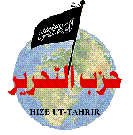 A number of radical Muslim groups are to be proscribed despite concern that this will drive them underground where they cannot be monitored. As part of the Prime Minister’s 12-point plan to tackle terrorism, announced after the London bombings on 7 July last year, the government is to unveil a list of organisations it wants to ban under the Terrorism Act 2006. The list is expected to include Hizb ut-Tahrir.
A number of radical Muslim groups are to be proscribed despite concern that this will drive them underground where they cannot be monitored. As part of the Prime Minister’s 12-point plan to tackle terrorism, announced after the London bombings on 7 July last year, the government is to unveil a list of organisations it wants to ban under the Terrorism Act 2006. The list is expected to include Hizb ut-Tahrir.
Shortly after the 7/7 bombings, Tony Blair signalled his intention to proscribe this group. But such a move will prove highly controversial. Hizb ut-Tahrir claims to oppose violence and it has condemned the 7/7 bombings, as well as the atrocities in Madrid and Bali. The Association of Chief Police Officers (Acpo) has questioned the merits of banning the group, as have human rights lawyers. “The Prime Minister correctly said fighting terrorism is an ideological battle,” said Shami Chakrabarti, director of Liberty. “How are we to fight the war of ideas if non-violent political groups are driven underground?”
Inayat Bunglawala, a spokesman for the Muslim Council of Britain, said: “We have major differences with Hizb ut-Tahrir, in particular its non-participation in the democratic process. Having said that, we think banning it is entirely wrong. It is non-violent.”
